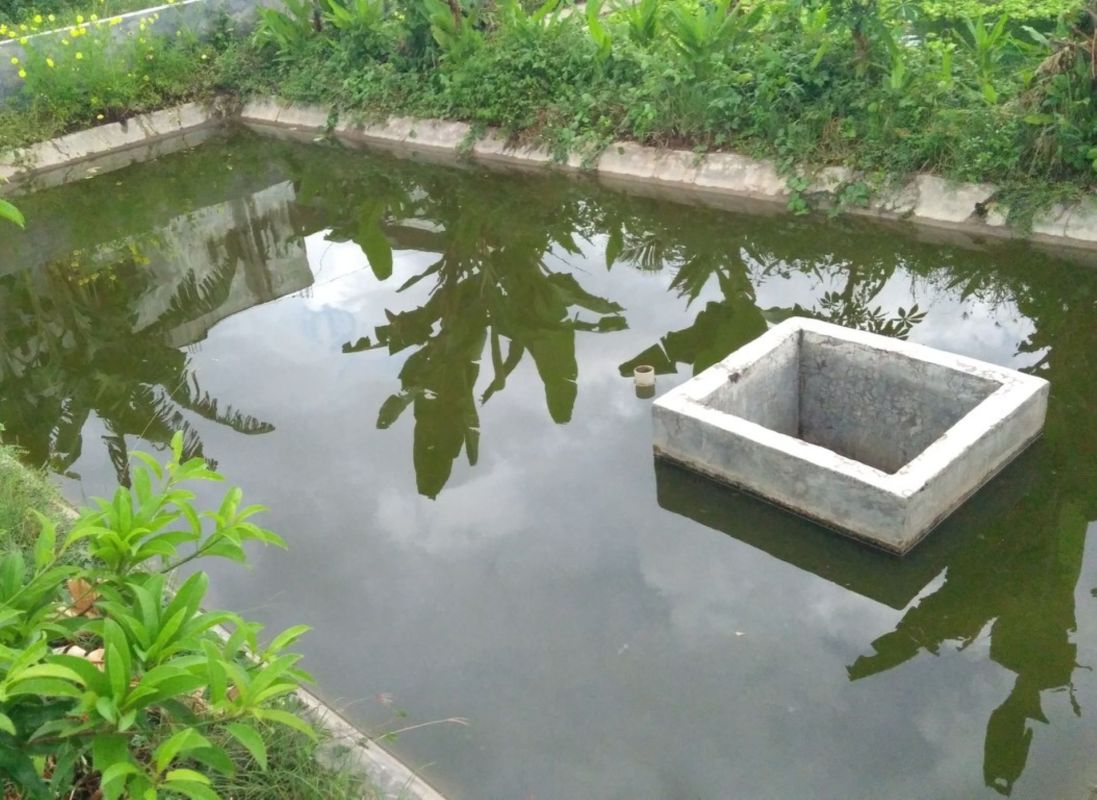Experts studying the aquaponics industry have a great gut feeling about reusing fish waste to create biogas (biologically derived gas), which can then help to power the sustainable food-growing process as part of a circular system.
If successful, the research could reduce methane emissions, expand vegetable production, and reuse seemingly worthless fish waste.
Biologists at Sweden's University of Gothenburg are testing whether manure digesters, sort of like ones used on other types of farms, can capture biogas from fish droppings in the aquaponics systems. The university describes aquaponics as a combined fish and vegetable farm. Farmers use nutrient-rich water made by the fish to fertilize plants as part of a soil-less, hydroponic system, according to the researchers.
The fishy solid waste has so far had no use — until now.
"By breaking down fish [fecal] matter … we can obtain a concentrated gas mixture of 70 percent methane that can be used as fuel. This can make aquaponics a source of energy," Victor Lobanov, a Gothenburg doctoral student, said in a university article on the research.
Biogas is already captured on hog, cattle, and other farms using digesters, which leverage the power of biology. Microorganisms in the digesters break down the waste, producing biogas, according to the Minnesota Department of Agriculture.
The Environmental Protection Agency said the biogas can be used to create electricity, heating, and transportation fuel.
And, in those farms, the World Wildlife Fund said the process helps to prevent manure from leaching nitrogen into the environment, while also mitigating methane emissions that would have escaped from the waste.
"Using this methane as a fuel dramatically reduces its climate impact by converting it into CO2, which is up to 34 times less potent as a greenhouse gas," the Fund states in a report.
Gothenburg experts are testing the premise for fish droppings this summer.
And Lobanov's team should have an ample supply of fish manure. Aquaponics is a growing $874 million market globally, according to Grand View Research, an India- and U.S.-based market research firm.
In the report, Grand View said the field is poised for "tremendous" growth, in part because the systems eliminate the need for inorganic fertilizers and pesticides.
Put simply, it's all centered on unlocking the hidden power of fish poop.
"Fish waste contains a lot of nutrients," Lobanov said in the Gothenburg report. "These should also be usable in aquaponics to enable even more sustainable food production than today."
After the pilot this summer, the Gothenburg researchers hope to create a modular digestion system that can be added to operational aquaponics farms, in effect allowing the farm to power itself. If successful, it could be rolled out into other types of farms, they said.
Join our free newsletter for weekly updates on the coolest innovations improving our lives and saving our planet.









